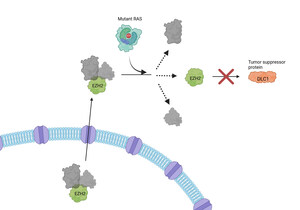Colorectal Cancer Awareness: What You Should Know About Screening
By the National Cancer Institute
BETHESDA, Md., April 1, 2011 /PRNewswire-USNewswire/ -- We're all familiar with messages like this one – "men and women aged 50 and older should have regular colorectal cancer screening tests." We read this message in our community newspapers and hear it on television and radio. Why is there so much media attention on colorectal cancer screening? Well, here's a message you might not have seen: over the last decade, in part due to increased screening, rates of new cases and deaths from colorectal cancer have been on the decline.
(Logo: https://photos.prnewswire.com/prnh/20110316/MM66939LOGO)
However, despite the improvements of the last decade, colorectal cancer remains the third most frequently diagnosed cancer in both men and women, and the second leading cause of cancer deaths, in the United States. Colorectal cancer screening is a vital part of prevention and early detection. Because colorectal cancer can take many years to develop, early detection and treatment of the disease greatly improve the chances of a cure. Screening also enables doctors to detect and remove abnormal colorectal growths, or polyps, before they even become cancer. According to current guidelines, people at average risk for this disease should be screened starting at age 50. If any family members have had colorectal cancer, you should talk to your doctor about when and how often you should be screened, because you are at a higher risk.
Unfortunately, almost half of people aged 50 to 75 are not being screened regularly for colorectal cancer. And, despite some gains in screening, Hispanics are still less likely to be screened than the general population. If cost is keeping you from making that appointment, remember that while insurance coverage varies, most insurance plans help pay for colorectal cancer screening tests for people aged 50 or older. Many plans also help pay for screening tests for people younger than 50 who are at increased risk for colorectal cancer. Check with your health insurance provider to determine your colorectal cancer screening benefits. If you do not have insurance, explore options by calling 1-800-4-CANCER to learn more about free or low-cost screening options in your community. You also may be able to find information about free or low-cost screening by calling your local health department. Under the health insurance reforms signed into law last year all new private plans will provide basic preventive services such as colon cancer screening at no cost.
If fear or a lack of understanding is keeping you from making that colorectal screening appointment, start by learning more about the different screening options available to you. On www.cancer.gov/espanol), you can read about screening options and compare the advantages and disadvantages of each. Typical screening options are colonoscopy every 10 years, yearly fecal occult blood testing (FOBT), and flexible sigmoidoscopy every five years along with FOBT every two to three years, but new and potentially more comfortable screening techniques are being developed. You can also ask your doctor the following questions about screening:
- Which screening tests do you recommend for me and why?
- How much do the tests cost?
- Will my health insurance plan help pay for screening tests?
- Are the tests painful?
- How soon after the tests will I learn the results?
For more information about colorectal cancer, contact the National Cancer Institute's (NCI's) Cancer Information Service(CIS) toll-free at 1-800-4-CANCER (1-800-422-6237) Monday - Friday from 8:00 a.m. to 8:00 p.m., Eastern Time. Trained information specialists are available to answer your questions in Spanish or English. You can also contact NCI's CIS on the internet, via LiveHelp Online Chat (Monday – Friday 8:00 a.m. – 11:00 p.m. EDT) or via email at www.cancer.gov/contact. Information also available on Twitter at http://twitter.com/ncimcmedia.
NCI leads the National Cancer Program and the NIH effort to dramatically reduce the burden of cancer and improve the lives of cancer patients and their families, through research into prevention and cancer biology, the development of new interventions, and the training and mentoring of new researchers.
SOURCE National Cancer Institute
WANT YOUR COMPANY'S NEWS FEATURED ON PRNEWSWIRE.COM?
Newsrooms &
Influencers
Digital Media
Outlets
Journalists
Opted In





Share this article